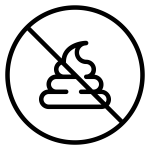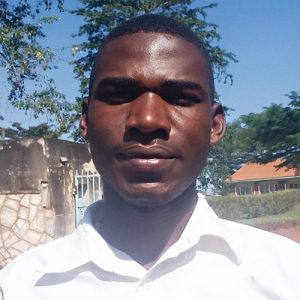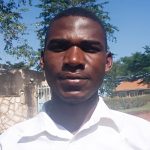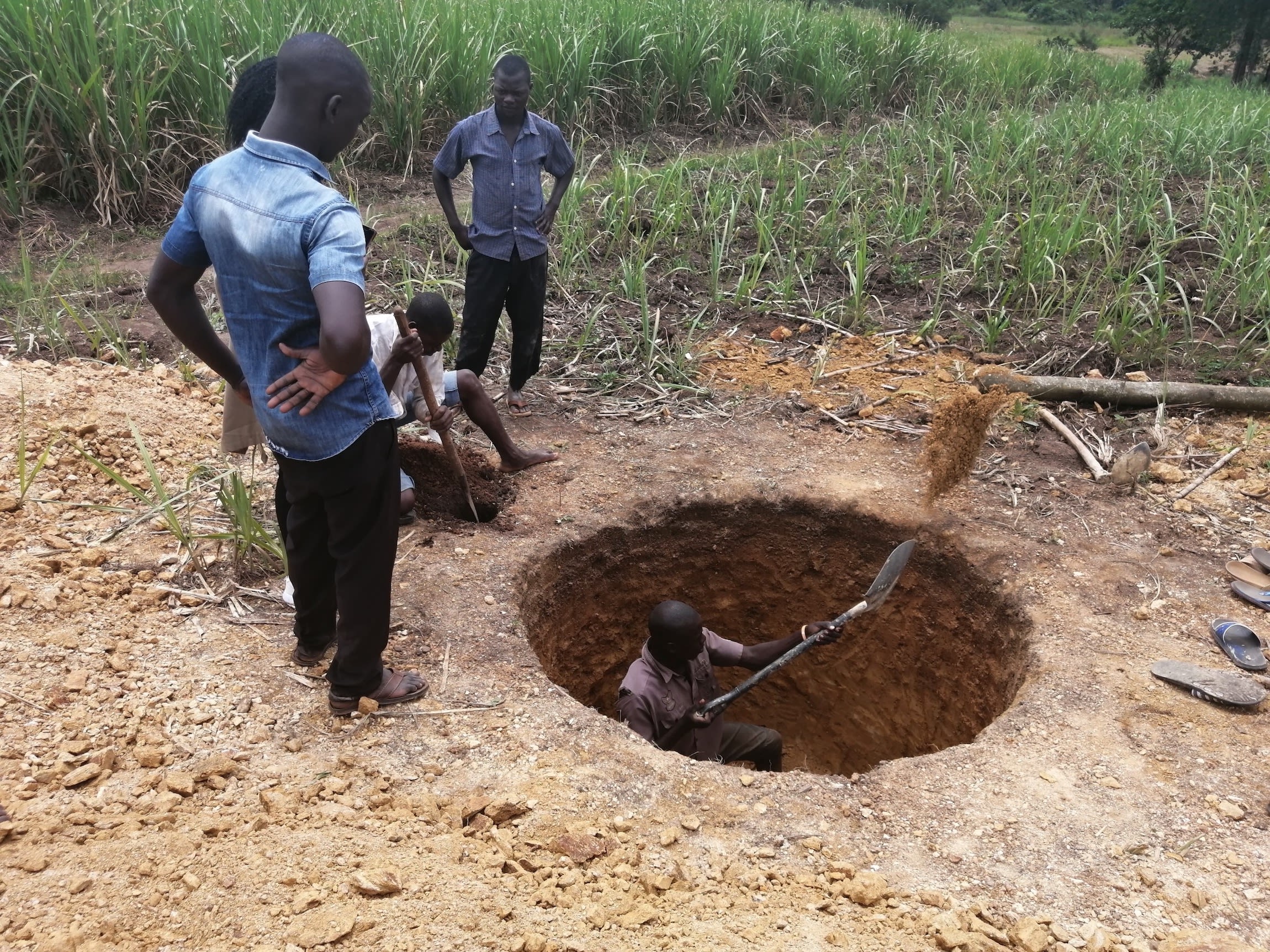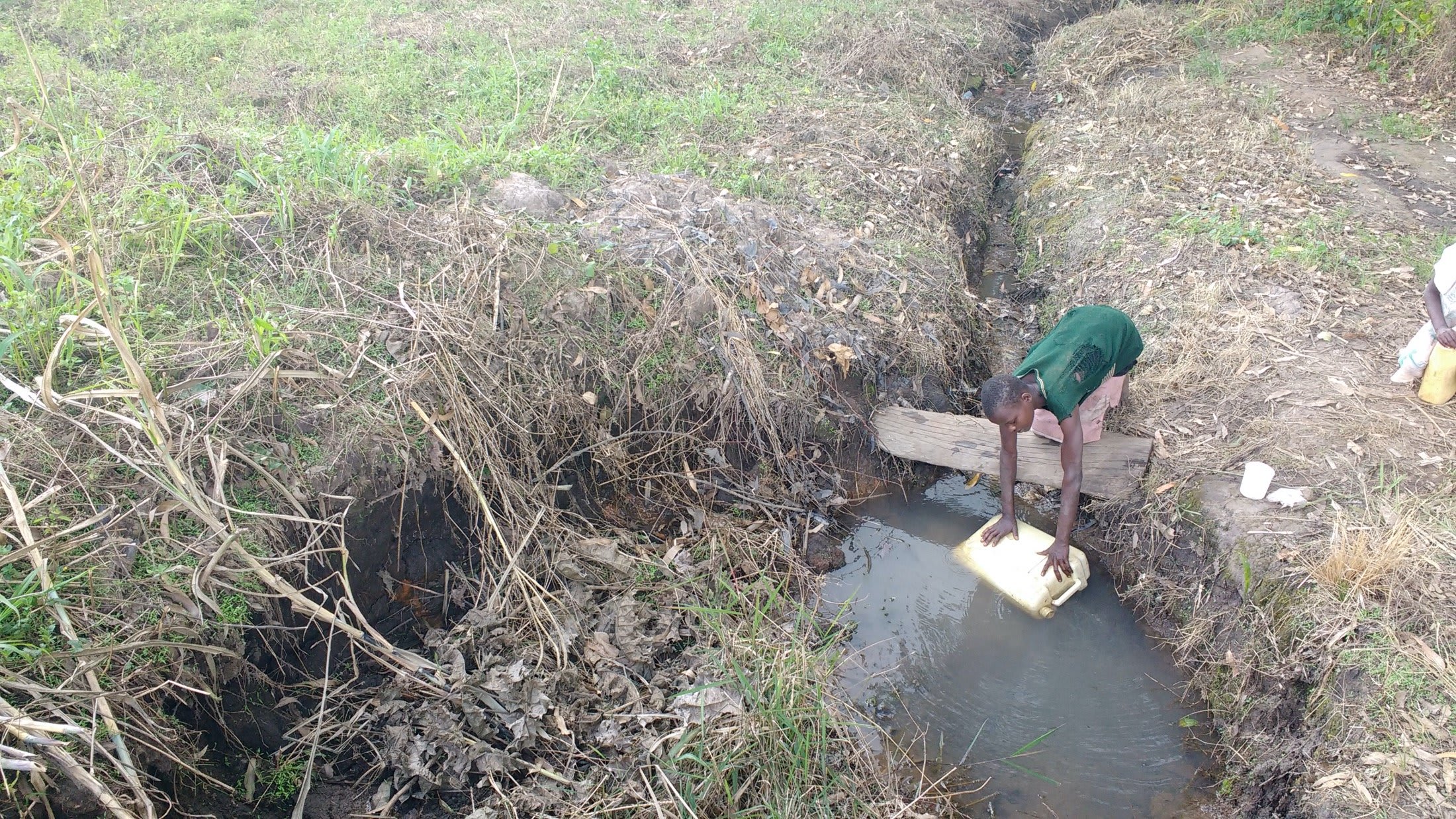The landscape in Rubona Kyawendera, Uganda has gentle undulating slopes. Sugar plantations are visible throughout the community and there are patches of Eucalyptus trees planted by the local people to chop down for making charcoal. People here primarily make a living farming and selling sugarcane for profit as well as growing maize, beans, groundnuts, potatoes, and cassava for home consumption.
One of the most significant challenges here is the lack of water. People walk more than a mile each day to reach the nearest scoop holes and protected springs.
"Walking to get water from this source can be tiresome after school," said Moses, an 11-year-old student from the community.
The current nearby open water source is also being shared with animals which exposes it to high risks of contamination. During rainy seasons, the water point is very turbid, or full of particles, due to uphill runoff. It also becomes very slippery and difficult to access. People here do use protected springs but they are far away, and when we visited them we noticed there were signs of silting on the platforms and poor drainage. It requires a lot of effort to unsilt the platforms and open the waterways through the drainage once this happens.
"Our water source is not clean and fit for human consumption because it's shared with monkeys and other wild animals. At times, the animals defecate and urinate in the water making it even unhealthier for us," said Edward Bakimba, a local farmer.
Some people resort to rainwater harvesting by placing buckets underneath their roofs to catch the falling water, but that is only reliable during the rainy seasons. Reported cases of stomachaches, especially among children who drink from this water source, are common. The lack of water in the community places a particular burden on the women and young girls who walk long distances each day in search of cleaner water from the protected spring or scoop holes.
"The wet season is often a challenge to collect water because it is slippery and hard to walk a long distance to the spring," said Charity, a woman we met during our visit.
"The runoff in wet season worsens the quality of the water because it is open and unprotected. I am looking forward to an improved water source."
There is a need to provide this community with a protected water source so that they can access clean and safe water throughout the year.
Here’s what we’re going to do about it:
New Hand-Dug Well
With the guidance of our artisans and mechanics, the excavated well will be cased, sealed with a well pad, and then finished with a new Consallen pump. The community will participate in excavating and constructing the water source.
Excavation takes a month or more on average, depending on the nature of the rock beneath. Construction of the well lining and installation of the pump takes about 12 days. This well will be located in Rubana Community and will bring clean water closer to families having to walk long distances for their water.
Training
Training’s main objectives are the use of latrines and observing proper hygiene practices since these goals are inherently connected to the provision of clean water. Open defecation, water storage in unclean containers, and the absence of handwashing are all possible contaminants of a household water supply. Each participating village must achieve Open Defecation Free status (defined by 1 latrine per household) before the pump installation for a shallow hand-dug well.
This social program includes the assignment of 1 Community Development Officer (CDO) to each village. The CDO encourages each household to build an ideal homestead that includes a latrine, handwashing facility, a separate structure for animals, rubbish pit, and drying rack for dishes.
We also implement the Community-Led Total Sanitation (CLTS) approach with each of our village partners. This aims to improve the sanitation and hygiene practices and behaviors of a village. During these sessions, village leaders naturally emerge and push the community to realize that the current practices of individual households – particularly the practice of open defecation – are not only unhealthy but affect the entire village. CLTS facilitates a process in which community members realize the negative consequences of their current water, sanitation, and hygiene behaviors and are inspired to take action. Group interactions are frequent motivators for individual households to build latrines, use the latrines, and demand that other households do the same.
Improved Sanitation
The aim is that all households own an improved latrine. Many households do not use a latrine but use the bush. Due to open defecation, feces are spread all over the village. This leads to waterborne diseases and contamination of groundwater and surface water. Our aim is that the community is able to live a healthy life free of preventable diseases. We endeavor that at the end of our presence in the community, people will have both access to sustainable, clean water and access to sanitation. We have now organized families to form digging groups for latrine construction, and empowered them with tools they will need.

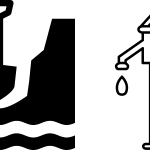

 Rehabilitation Project
Rehabilitation Project




